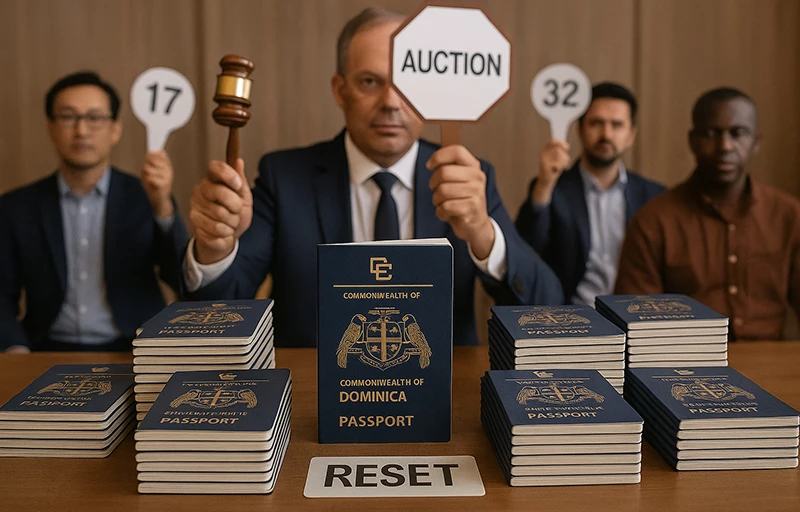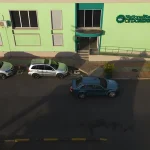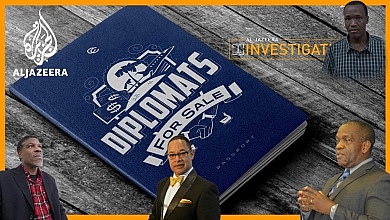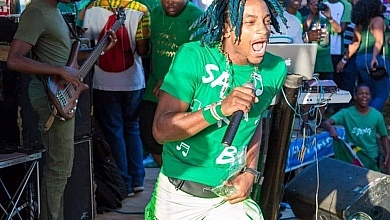
The CBI Fallout: Can Dominica Withstand U.S. Sanctions?
Selling Citizenship, Losing Access
A leaked memo from the U.S. State Department has added Dominica and three of our Eastern Caribbean neighbours to a watchlist that could soon translate into serious travel and diplomatic restrictions. For a nation that has leaned heavily on its Citizenship by Investment (CBI) programme to keep its economy afloat, this isn’t a stern warning; it’s a flashing red light.
The memo, reportedly signed by U.S. Secretary of State Marco Rubio, outlines deep concern over CBI schemes that issue passports without residency requirements. Dominica, Antigua and Barbuda, St. Kitts and Nevis, and St. Lucia are being called out by name. According to the Washington Post, these countries have 60 days to submit detailed action plans or risk being included in a list of nations whose citizens could face outright travel bans to the U.S.
How Did We Get Here?
Dominica’s CBI program has been touted as one of the most successful in the Caribbean. It has helped fund infrastructure, education, housing, and climate resilience projects, especially after the devastation of Hurricane Maria. But with success has come scrutiny, and not all of it unwarranted. There have long been whispers, both domestically and abroad, of lax due diligence, rushed applications, and beneficiaries with questionable backgrounds.
Many Dominicans have been skeptical of the CBI programme, wondering whether the benefits truly trickle down to the average citizen or simply line the pockets of a select few. Despite repeated government assurances of rigorous background checks and enhanced security protocols, the perception has persisted: our citizenship, and the sovereignty it symbolizes, is up for sale.
Beyond Travel Bans: What’s Really at Stake
While many Dominicans have focused on the possibility of a U.S. travel ban, the real implications could be far more damaging. Restrictions like these could affect:
- The island’s reputation in international finance and diplomacy.
- The willingness of foreign investors and business partners to engage.
- Cruise lines and airlines re-evaluating their routes.
- Tourism perception, as U.S. citizens could be discouraged from visiting.
- Nationals who rely on travel to the U.S. for medical, family, or economic reasons.
Let’s be clear: this is not just about losing vacation privileges or creating temporary diplomatic friction. This touches every sector of Dominica’s development. If these restrictions go into effect, the island’s already vulnerable economy could suffer a severe blow.
The Trump-Rubio Doctrine and Caribbean Exposure
Marco Rubio, once a leading voice in shaping U.S.-Caribbean relations, has now made it clear that citizenship programs without residency requirements are seen as dangerous loopholes in the American immigration and security system. This development echoes past moves by U.S. administrations to tighten immigration, police offshore finance, and penalize perceived weak governance in small nations.
What this signals is a shift in tone from tolerance to action. No longer will the U.S. turn a blind eye to what it considers ‘passport vending’ operations, regardless of how vital those revenues are to the host countries. And unlike previous threats that faded with political transitions, this watchlist is structured as an active policy document with deadlines and potential enforcement.
Will Dominica Comply, or Call the Bluff?
This puts Dominica in a dangerous position. Does the government overhaul the CBI programme in ways that might kill its attractiveness to foreign buyers? Or does it double down and hope the U.S. administration is bluffing?
Neither option is without risk. A drastic restructuring of the CBI model could cripple a key revenue stream. But ignoring Washington’s ultimatum risks deeper sanctions, including visa restrictions and reputational blacklisting that could affect even non-CBI Dominicans.
One less-discussed element in the U.S. memo is the potential for countries to ease Washington’s concerns by agreeing to accept third-country nationals deported from the United States or entering into a so-called “safe third country” agreement. In theory, such arrangements could present Dominica with a diplomatic off-ramp, allowing it to maintain some version of the CBI programme while offering Washington help managing immigration flows. However, these deals carry profound implications: accepting deportees from other nations could stretch Dominica’s social and security infrastructure, and agreeing to function as a “haven” may trigger domestic backlash. It’s a diplomatic trade-off requiring broad consultation and careful negotiation to avoid unintended consequences.
The government has yet to respond officially. But one thing is clear: time is ticking, and silence can no longer pass as strategy.
Grenada’s Temporary Escape, and Our Region’s New Reality
Notably, Grenada was omitted from the U.S. watchlist, at least for now. While some regional commentators are celebrating this as a vindication of Grenada’s “more responsible” CBI approach, others warn it may simply be a matter of timing. Rumors suggest a second phase of scrutiny may include them as well.
The real issue isn’t who got spared this time. It’s the future of all Caribbean CBI schemes. If Washington’s message is that only programs with deep vetting, transparency, and in-country presence will be tolerated, then every country offering economic citizenship will have to adapt, or fold.
Local Sentiment: Growing Unease
On the streets of Roseau and in WhatsApp group chats across the diaspora, the news has sparked fear, anger, and confusion. Many Dominicans worry about what this means for their own ability to travel or for family abroad. Others see it as political fallout from the government’s alleged overreliance on the CBI programme as a quick-fix economic tool.
There’s also an emerging narrative of betrayal: that ordinary citizens are being forced to pay the price for poor governance and political short-sightedness. This could very well grow into a political crisis, especially if restrictions are enacted and Dominicans begin feeling the sting of consequences firsthand.
Reform, Retrench, or Reimagine?
Can Dominica reform its CBI program in time? That depends on how willing the government is to embrace transparency and third-party oversight. It will likely require:
- Mandatory in-country residence requirements.
- Slower application processing with enhanced vetting.
- Full audits of past CBI issuances.
- Greater international cooperation on background checks.
These are not small changes. They strike at the very core of how the CBI program has functioned for years.
Alternatively, Dominica may choose to scale back or suspend the program altogether, a drastic move that would require restructuring the national budget and replacing CBI revenues with new income streams. That, too, would demand long-term vision and short-term sacrifice.
The Opposition’s Silence and Civil Society’s Role
Perhaps most worrying is the lack of coordinated response from the political opposition. The silence has been deafening. This is an issue that affects all Dominicans, regardless of party. Civil society groups, NGOs, religious institutions, and business chambers must now lead the conversation. We need town hall meetings, press forums, and citizen consultations.
If there was ever a moment for participatory democracy, it is now. This is not an internal party matter. It is about Dominica’s reputation, security, and global relationships.
The End of an Era?
Dominica’s CBI program, once hailed as a model for economic innovation, now finds itself under siege. What began as a creative solution to post-disaster recovery has become a liability on the international stage.
This isn’t just about passports. It’s about whether Dominica wants to remain seen as a responsible member of the global community, or retreat into isolation. We have 60 days. Let’s not waste them.
This article is copyright © 2025 DOM767








